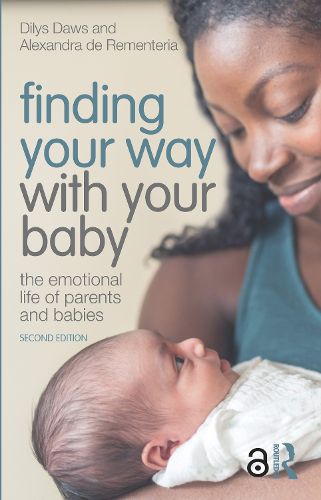Readings Newsletter
Become a Readings Member to make your shopping experience even easier.
Sign in or sign up for free!
You’re not far away from qualifying for FREE standard shipping within Australia
You’ve qualified for FREE standard shipping within Australia
The cart is loading…






Finding Your Way with Your Baby explores the emotional experience of the baby in the first year and that of the mother, father and other significant adults.
This updated edition is informed by latest research in neuroscience, psychoanalysis and infant observation and decades of clinical experience. It also includes important new findings about how the mother’s brain undergoes massive restructuring during the transition to parenthood, a phenomenon that has been named ‘matrescence.’ The authors engage with the difficult emotional experiences that are often glossed over in parenting books - such as bonding, ambivalence about the baby, depression and the emotional turmoil of being a new parent. Acknowledgement and understanding of this darker side of family life offer a sense of relief that can allow parents to harness the power of knowing, owning and sharing feelings to transform situations and break negative cycles and old ways of relating.
With real-life examples, the book remains a helpful resource for parents, as well as professionals interested in ideas from psychoanalytic clinical practice including health visitors, midwives, social workers, general practitioners, paediatricians and childcare workers.
$9.00 standard shipping within Australia
FREE standard shipping within Australia for orders over $100.00
Express & International shipping calculated at checkout
Finding Your Way with Your Baby explores the emotional experience of the baby in the first year and that of the mother, father and other significant adults.
This updated edition is informed by latest research in neuroscience, psychoanalysis and infant observation and decades of clinical experience. It also includes important new findings about how the mother’s brain undergoes massive restructuring during the transition to parenthood, a phenomenon that has been named ‘matrescence.’ The authors engage with the difficult emotional experiences that are often glossed over in parenting books - such as bonding, ambivalence about the baby, depression and the emotional turmoil of being a new parent. Acknowledgement and understanding of this darker side of family life offer a sense of relief that can allow parents to harness the power of knowing, owning and sharing feelings to transform situations and break negative cycles and old ways of relating.
With real-life examples, the book remains a helpful resource for parents, as well as professionals interested in ideas from psychoanalytic clinical practice including health visitors, midwives, social workers, general practitioners, paediatricians and childcare workers.